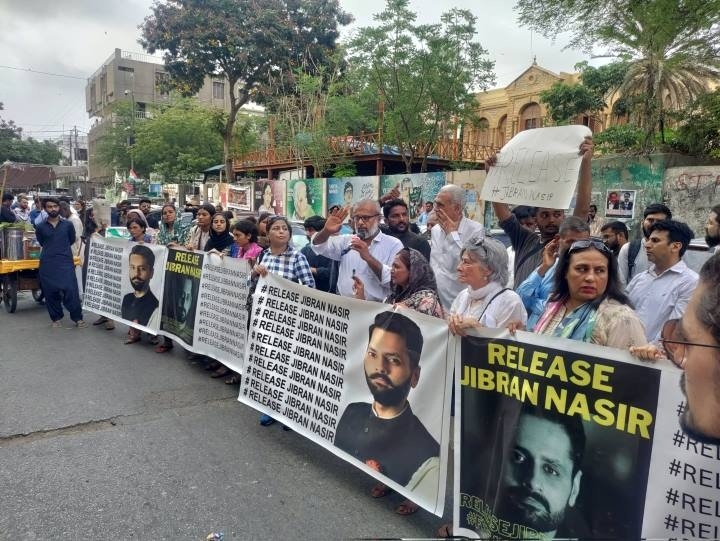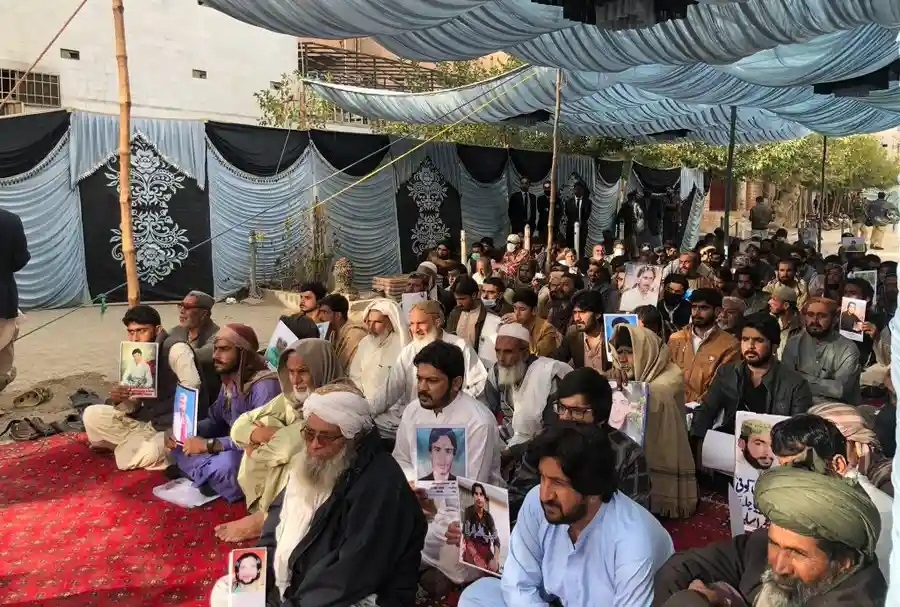Balochistan’s relentless struggle is a saga of paradox between neglect and the pursuit of justice … writes Dr Sanchita Bhattacharya. Despite being the largest province of Pakistan, Balochistan finds itself entrenched in paradox as the most neglected one. Despite harboring substantial resources, 48% of its population grapples with poverty. Decades of state neglect and exploitation have fueled a brutal insurgency, driven by economic marginalization and historical discontent. Recent events, including the ruthless suppression of a peaceful Baloch march and extrajudicial killings, lay bare a government clinging to power through force. The international response remains tepid, with the Human Rights Commission of Pakistan condemning state violence. Balochistan stands at a critical juncture, its people yearning for justice, while the world witnesses a stark failure in protecting basic human rights. The narrative of Balochistan’s struggle unfolds amid systemic abuse, demanding urgent global attention and intervention
Balochistan is the largest province of Pakistan, comprising roughly 43 per cent of the total area of the country. Unfortunately, it is also the poorest and least populated. One of the world’s largest copper deposits has been found at Reko Diq in Balochistan. Regrettably, more than 48 per cent of the province’s population lives below the poverty line. The failure of the central government to address Balochistan’s economic slowdown and social disintegration has created a sense of deprivation in the minds of the common Baloch people over the decades.
The ongoing insurgency in the province is a direct outcome of decades of state neglect and exploitation. Relations between Baloch nationalists and the central government have been hostile since the creation of Pakistan in 1947, intermittently turning vicious. The roots of Baloch dissent trace back to the early 1970s when the Baloch Students Organisation-Awami (BSO-Awami) emerged from a split with the Baloch Students Organisation (BSO). With a Marxist-Leninist ideology, BSO-Awami vehemently opposed the repressive and feudal Sardari system, aligning itself with the Baloch People’s Liberation Front in resisting the control of the Pakistani establishment. The inaugural chairman of BSO-Awami, Taj Baloch paved the way for a legacy of resistance. His follower, Abdul Nabi Bangulzai, assumed the mantle as a guerrilla leader, emphasizing the organization’s commitment to challenging the status quo.

In 2004, long-simmering tensions erupted into a renewed insurgency. One of the main Baloch grievances is the ongoing construction of the mega-port of Gwadar, which commenced in 2002. In 2004, a renewed ethnic insurgency broke out, and violence has escalated since the army’s killing of Baloch leader Nawab Akbar Bugti in 2006, coupled with the illegal custody and disappearance of many additional Baloch leaders by the Pakistani government. U.S. intelligence estimates that approximately 25,000 army and paramilitary forces are engaged in counter-insurgency operations in Balochistan, further exacerbating ethnic grievances. The current conflict in Balochistan is the bloodiest since the 1970s.
In the ongoing recent events, on December 21 at midnight, law enforcement agencies used ruthless force to disperse a peaceful Baloch march heading towards the Islamabad Press Club, protesting state crimes against the Baloch people. State-sponsored forces employed water cannons and tear gas, detained hundreds of protesters, and subjected them to brutality. Women were dragged, their clothes torn apart, children wounded, and elderly individuals physically abused. After 24 hours of disgrace and harassment, the protesters were finally released but were then transported back to Balochistan from where they came.
The killing of Balaach Mola Bakhsh and three others in Turbat, Balochistan in November prompted protestors to embark on a nearly 1600 km march to Islamabad. On November 24, 2023, four people were killed in an encounter by the Counter Terrorism Department (CTD). The identified victims were Shakoor Baloch, Saif Baloch, and Balach Mola Bakhsh, while one remains unknown. Balach’s lawyer, Advocate Jadain Dahshti, revealed that Balach had been abducted from his home on October 29, and an FIR against him was not filed until 22 days later on November 20. Dahshti denounced the encounter as fake, stating, ‘They filed a case under the Anti-Terrorism Act (ATA), charging him with possessing 5kg of explosives. The next day, he was brought to court, where 10 more days of remand were granted. His bail plea was scheduled for November 24, but the night before, he was killed in this fake encounter.
The march, initiated on December 6 from Turbat and led by Baloch women following the earlier mentioned extrajudicial killing, revealed a noteworthy feature – its predominantly female composition. Young, aspiring women took the lead, seeking redressal of their grievances from the state. It is worth mentioning that author and journalist Mohammed Hanif declared his decision to return the Sitara-e-Imtiaz, the third-highest civilian award of Pakistan, to the state in protest against the violence inflicted on Baloch marchers. Responding to a video of a Baloch girl pleading with the authorities for the ‘right to live,’ Hanif criticized the exploitation of Baloch protesters, expressing shame at witnessing a new generation being deprived of basic dignity.
Nevertheless, the capital police blocked entrances to the city and major routes leading to the National Press Club. Subsequently, the police began detaining Baloch men and women as part of their actions against the protesters. Videos shared on social media depicted security forces using water cannons and tear gas on the protesters, forcibly dragging Baloch individuals into police vans, and employing batons against them. Additionally, the police dismantled protest camps and loudspeaker setups outside the National Press Club. These actions garnered enormous criticism, compelling the caretaker government to establish a negotiation team, including Information Minister Murtaza Solangi, Fawad Hasan Fawad, and Jamal Shah, to engage with the protesters’ families. However, this ‘effort’ to engage in dialogue was swiftly overshadowed by the heavy-handed tactics employed by the Islamabad Police, resulting in the detention of numerous protestors amid the use of water cannons and baton charges.
Aptly, in a statement condemning state violence against the protesters, Human Rights Commission of Pakistan (HRCP) Chairperson Asad Iqbal Butt stated that the commission was appalled by the state’s response, citing unwarranted force in the form of water cannons and batons being used on women, children, and the elderly. The statement reads, ‘Numerous women protesters have reportedly been arrested and separated from their male relatives and allies. At least one Baloch woman journalist covering the long march has also been arrested. This treatment of Baloch people exercising their constitutional right to peaceful assembly and freedom of expression is inexcusable.
Appropriately, the call for protest has reached overseas as well. Announcing a noteworthy initiative, Salia Marri, the niece of Baloch national leader Baba Khair Bakhsh Marri and wife of abducted Baloch nationalist Mir Taj Muhammad Sarparah, has revealed plans for a five-day sit-in protest in London scheduled from January 3 to 7, 2024. The purpose of this demonstration is to intensify ongoing protests against reported cases of enforced disappearances and human rights violations in Balochistan. Additionally, amid this continuing protest regarding Baloch genocide and enforced disappearances, the Baloch Yakjahti Committee-Kech conveyed through a post on X that should the state fail to engage in negotiations in accordance with their demands, they are prepared to elevate the matter to the court of the Baloch people.
Balochistan is at a turning point in its history, with struggles from the past resonating into the present. Ongoing events, marked by demonstrations and committee discussions, offer a glimpse into the complex difficulties faced by the people of Balochistan. The path forward demands deft negotiation, navigating the delicate interplay of identity, autonomy, and the precarious equilibrium between authority and dissent. As the global audience watches and policymakers deliberate, Balochistan’s narrative unfolds. A saga in flux, each chapter reveals fresh dimensions of a nation entwined in its historical legacy and aspirations for the future. However, the journey is fraught with negativity, a stark reminder that the pursuit of peace is an arduous voyage, laden with uncertainties. Yet, within this complexity lies an opportunity for introspection, international cooperation, and empathetic policies to illuminate a path toward a more stable and harmonious future for Balochistan.
(Dr. Sanchita Bhattacharya is an eminent scholar of International Relations and Global Politics with a specialization in Pakistan. She contributes regularly on important issues)

Leave a Reply